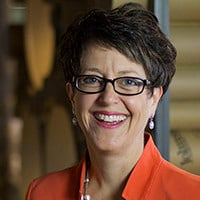ERM Shelton Stat of the Week
94% of people in America believe recycling helps the environment. – Global Eco Pulse®, 2024
I’ve been making rounds at conferences this fall, and I’m actually en route to the Flexible Packaging Association’s FlexForward® conference as I write this. I’ve had a lot of opportunities to dig more deeply into our consumer data, share it widely, take questions and draw conclusions. One conclusion I’ve come to is that among all the big, hairy sustainability problems we’re facing, waste is the one we can make significant progress on in a short amount of time.
Here's why:
- We’ve long seen that people are bought into recycling — they love the idea of it. It’s awesome to think we can buy whatever we want, drop the packaging or products in a recycling bin at the end of their use and, poof, they become something else. Nothing is wasted — and that really works for the “waste-not, want-not” ideology many of us were brought up in. But as you’ve probably heard me say, we’re in a bit of trouble here: 32% of people in America no longer believe that what they toss in the recycling bin is actually getting recycled. Only 29% believe it is.
But here’s where it gets interesting: Folks who believe recycling works are more likely to do the hard things to ensure items get recycled, like taking packaging to a drop-off location. So if we tell the right stories (and we’ve learned a lot about this through our Canned Good campaign) we can increase the belief that materials are getting recycled. And then folks will be more likely to make the effort to do it (that’s kind of a no-brainer … why would you make the effort to participate in something you don’t actually think is real?). - Earlier this year, we published a revealing consumer insights study related to expended producer responsibility (EPR). We learned the number one thing Americans say would improve their opinion of a company’s packaging: Make it biodegradable. And I see many companies rising to the occasion. Eastman now has multiple products on the market that are compostable and/or biodegradable (Aventa and Esmeri are two), and companies like Danimer have pioneered innovations that are being commercialized in several cool ways (check out Phade). As these companies and the many more that are working on biodegradable solutions share their stories in engaging, motivating ways, we will shift to a future where composting is “the way we do things around here.” And that will bring about a massive shift in the waste problem.
- We’ve actually just completed some insights work for the Flexible Film Recycling Alliance and Flexible Packaging Association that I’ll be presenting at FlexForward®. The aim was to understand what’s in the way of people recycling their flexible films and what messaging would work best to get them to do it. One of the things we learned is that for folks who actually do take their flexibles to a drop-off location, they do it because “it’s the right to do.” That’s an American value we can all tap into — and we can tap into it with compelling stories that speak to that value. In the comms world we always talk about communicating to an audience, “what’s in it for them.” We call it a value proposition. Often the best value propositions are ones that offer people an opportunity to live their values.
For all that seems to divide us politically, over and over I see examples of the values that unite us in my daily life. “Waste not want not,” “dust to dust” and “it’s the right thing to do” are common threads of our American experience. And we can leverage the heck out of those threads through compelling storytelling that brings everyone together to solve the waste problem.
 View all
View all 